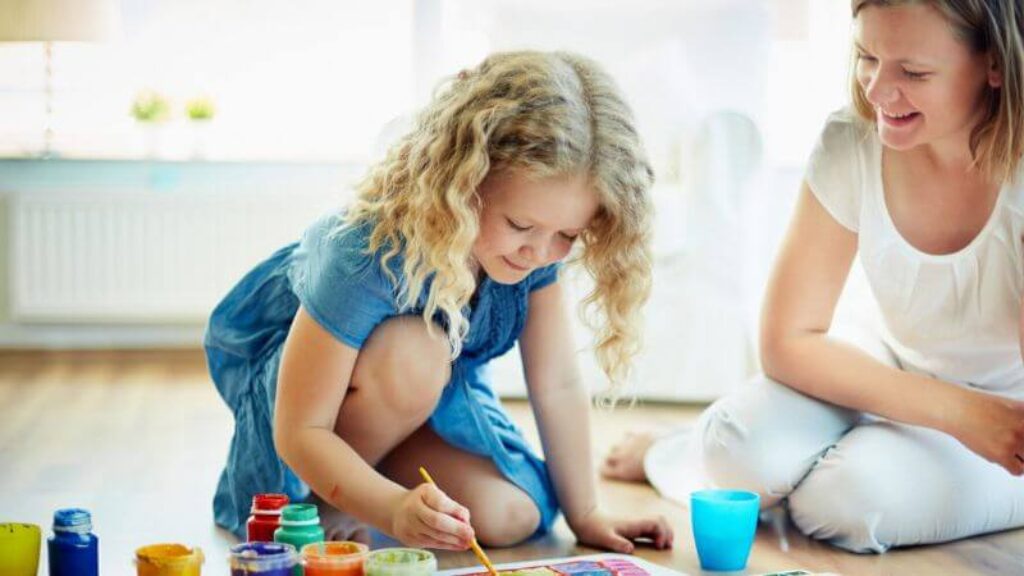07 Real-Life Tips on Parenting: Your Guide to Positive Parenting!
Congratulations, you have become a parent. Welcome to the journey that is filled with one-of-a-kind joy, rewards, and challenges. Amidst this maze, there is a little human whom you want to make confident, happy, and kind. Here, real-life tips on parenting kick in! This post is rich with practical and real-life positive parenting advice and strategies to raise amazing individuals. Let’s get started with the joyride!
Parenthood is the most challenging, rewarding, and draining adventure that you will ever engage in. This journey is filled with giggles, handprints, crayon marks on the wall, meltdowns, and much more.
Let’s admit it! Parenthood is not only filled with joyous moments but also has a sort of guilt. Did I shout too much? Is my kid eating the right food? Will my kid be up for sharing? Is he/she doing well in school? I am raising him/her, right? All these questions freak you out almost every day.
But not anymore!
We are parents just like you. We encounter the same eating tantrums, handle never-ending laundry every day, stress out in making our little human sleep, deal with sleep deprivations, and fight unique battles every day.
This post is your guide to positive parenting through real-life practical tips.
Let’s focus on strengthening your relationships with children, elevating their confidence, seamlessly navigating through tricky circumstances, and managing your stress like a breeze.
First, let’s begin with what positive parenting is and what benefits it provides to your children in the long run.
What Is Positive Parenting? What Are Its Benefits?

Positive parenting is having a supportive and strong relationship with your children. It is a philosophy that isn’t about punishment, it emphasizes building and strengthening bonds with kids. The true definition of parenting is the process of preparing your child to become independent and confident.
This approach is completely different from strict parenting which involves rules with consequences. It is about creating a positive environment where your children are loved and respected while learning their responsibilities.
The following are the key principles of positive parenting.
Benefits of Positive Parenting

As parents we want our children to reach their full potential while ensuring their happiness. Here, positive parenting is the most powerful approach to attain this goal. This approach contributes to the success of your children in every aspect of their lives. Let’s discuss more about its benefits.
Now, you have understood what positive parenting is and its benefits for your children. Let’s take a look at the real-life parenting tips that will help you raise happy, confident, and kind little people!
07 Real-life Tips On Parenting to Raise Confident and Happy Human Beings!
The following real-life tips on parenting will help you raise confident, happy, and resilient children.
Emphasize Connection

Connection is the foundation of communication, trust, and positive behavior. To build a strong connection with your child, you must put away distractions such as social media because they hinder communication and impact your health. Put your mobile away, especially during snuggle time, play time, and having conversations.
Whenever you speak to your child, make eye contact, pay attention, and acknowledge their feelings without judging them. If you make your child feel heard and understood, they will be more open with you. Use clear and age-appropriate language to help them understand and express themselves.
Physical affection helps children thrive. Do a lot of hugs, cuddles, and even high-fives to make them feel secure. Engage in fun activities that you both enjoy. Ask what they did in school, their friends, and interests. Create a special tradition to build a strong connection, it can be a bedtime story, watching comedy movies on the weekend, eating healthy food, or special breakfasts on Sundays.
Positive Reinforcement
You should acknowledge your child’s effort no matter how small it is. You need to reinforce desired behavior through encouragement and appreciation. When you do it consistently, it increases the chances of repeating those positive behaviors in the future. Positive reinforcement motivates your child to make good choices again to earn more appreciation. This is one of the important tips on parenting.
Positive feedback and praise help in building confidence as well. When you praise your children’s efforts they feel good about themselves which contributes to self-worth and a sense of competence.
So, next time if your child picks up a toy lying on the floor, praise him/her. Don’t just say ‘Good job’ try ‘Wow, I love how you picked your things and helped me in keeping this space clean’. Match your words with your facial expressions, and make sure you smile or show your excitement in your face too. You can use different types of positive reinforcement like extra playtime, praise, high-fives, hugs, and other things that make your little one happy.
Discipline with Affection

While discipline is a word that gives us a picture of punishment and power, in good parenting it means guiding your child to build desired behavior with empathy and affection. This is one of the vital tips on parenting, it is all about making your child understand the consequences of their doings rather than punishing them.
For example, if your child has spilled juice on the table, instead of punishing or yelling you can have a calm discussion and make them clean it up. This helps in developing a sense of responsibility.
When you combine discipline with affection, your child develops emotional intelligence which is imperative in sailing smoothly through various life challenges. Showing empathy and guidance creates a safe environment for your child to grow and learn which strengthens your bond with them.
Let them know what you expect of them. Create clear boundaries and rules affectionately. Allow your child to experience the consequences of their action (if possible). Avoid giving punishments and try to understand why they behave this way, see if they are seeking attention, tired, or upset about something. Offer guidance with love to help them make good decisions and become kind human beings.
Also, check- 20 Best Comedy Movies To Refresh Your Mood
Clear and Consistent Boundaries
Your child’s life is filled with learning, laughter, and exploration. However, you need to set boundaries to keep them safe but you need to do it with love. Why? Clear boundaries establish a predictable environment for your child as he knows what he/she is expected to do. These boundaries also help your child understand what type of behavior is acceptable and which is not. This enables them to have self-control and make good choices.
When you set boundaries and enforce them with respect, your child also learns to respect self and others. You should use clear language to communicate your expectations as children don’t understand ambiguity. Also, keep adjusting the boundaries according to your child’s age. For example, a toddler plays in a designated area and a teenage kid has restrictions for social outings.
Setting boundaries is one of the critical tips on parenting. Instead of saying ‘Don’t climb on the couch, try explaining how climbing on the sofa is unsafe and this activity should be done in the right place. Try giving choices to your child like ‘which t-shirt they want to wear as this promotes cooperation and a sense of control.
Playing is a Powerful Tool
Not textbooks, playing is a powerful tool for children to learn. Playing is not about entertainment and fun, it is a foundation that creates a happy and healthy childhood. Let your child lead in a play. Give them open-ended materials and toys such as blocks, art supplies, or dolls, and allow them to unleash their imagination and creativity.
Join their imaginary world, build blocks together, and introduce them to stories that fuel their creativity. Minimize screen time, go out, breathe in the fresh air, and explore outdoor games. Playing outdoors also involves physical activity and coordination. This is one of the vital tips on parenting that can improve coordination and promote the child’s physical development
Accept Your Imperfections

Every parent yearns to become ‘the perfect mom and dad’ for their children. However, there is no such thing. Every parenting is unique, unpredictable, messy, and has its own set of challenges. The key is to focus on the positive and embrace your imperfections, this is vital advice for new parents. Your little person is a keen observer, he/she sees you struggle. So, show them that challenges are a way to learn and grow. Let them see that it is perfectly okay to make mistakes.
You can share your emotional struggles like feeling overwhelmed, frustrated, or losing cool with your child as this will create a connection. They will feel that they are not the ones dealing with such emotions. This way you open the door to share their feelings and vulnerabilities with you.
Some days you will feel like a pro and other days you might question your parenting. Don’t worry as you are not alone. Apologize even after a small fight and celebrate your tiny victories as well. Every person makes mistakes, you need to learn from them and move on, just don’t be hard on yourself.
Prioritize Your Health
Parenting is a 24/7 demanding job. You need to take care of a million tasks in a day. However, if you are not in the correct mood or health, you cannot give your best. Therefore, taking care of yourself is one of the vital tips on parenting because happy parents raise happy children.
When you are fully recharged and well-rested, you have more energy, enthusiasm, and patience to play and spend time with your kids. Exercise and meditation can greatly help you manage stress levels. Prioritizing health is another significant tips for parents, doing so parents also teach their children about self-care.
In Summary
Parenting is the most demanding job. But, when you see your child giggle, crawl, walk, and grow, all the stress sways out of the window.
These 7 tips on parenting are just the beginning of your positive parenting journey.
Always remember that parenting is not a destination but a journey. There will be many ups and downs but you need to be consistent and follow all the tips for parenting that we have discussed in our blog.
Don’t forget happy parents raise happy children, so prioritize your physical and mental well-being. Embrace imperfections, celebrate small victories, and give your child the most memorable moments with you.
Let’s ditch the guilt, embrace positive parenting, and raise confident learners!











